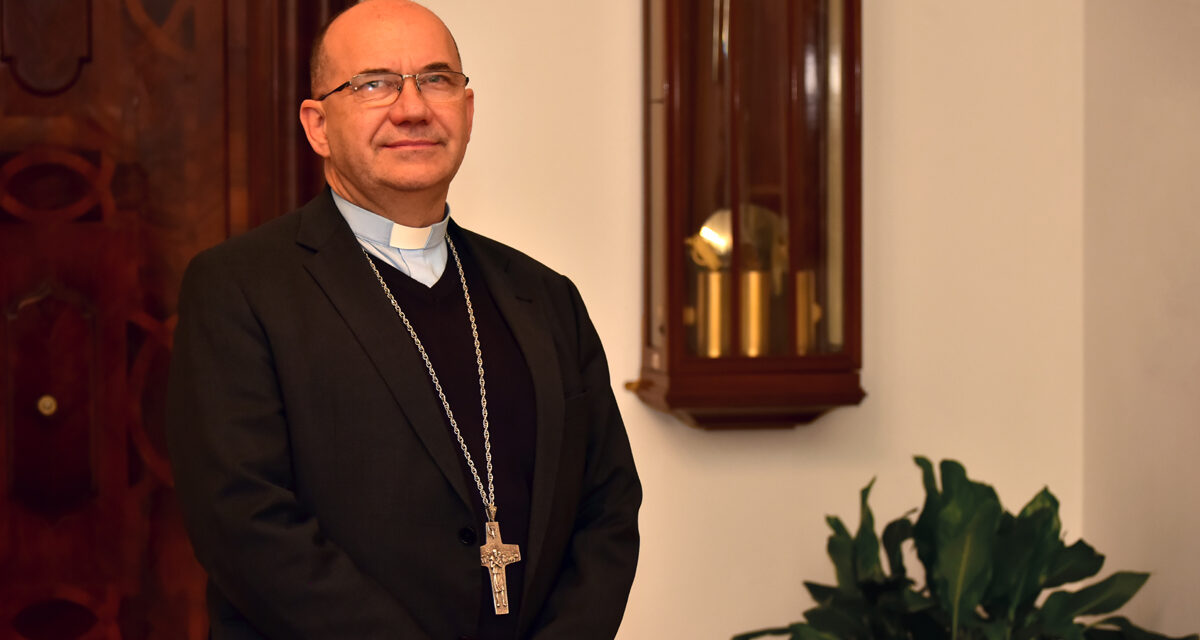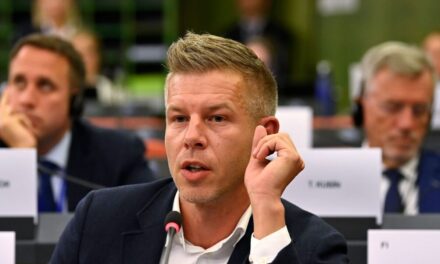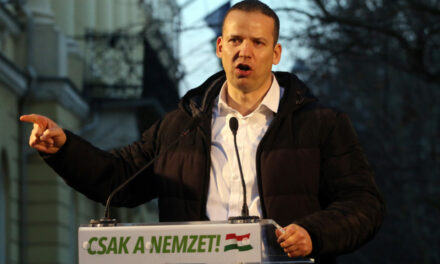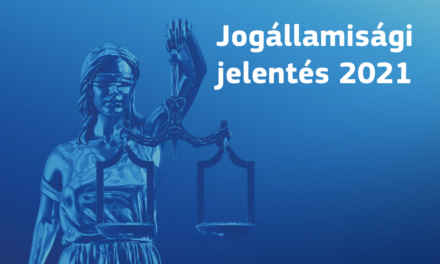Advent and Christmas become valuable only when we find joy in them, when they give meaning and purpose to our lives - Zsolt Marton, bishop of Vác, told our newspaper on the first Sunday of Advent. He added: the celebration is not needed by God, since He is perfect, but by us. By celebrating, many joys and spiritual treasures flow back to us, enriching us. Those who cannot experience this will miss out on this treasure.
Interview by Tamás Császár
A large part of society learns about the coming of Advent from advertisements and news broadcasts, but do we know where the tradition of the Advent holiday circle actually comes from?
The term advent means: Coming of the Lord, more precisely, it comes from the Latin phrase adventus Domini, i.e. the coming of the Lord. Its origin can be traced back to the fact that the first Christians, i.e. the members of the early church, lived in anticipation of the second glorious coming of Christ. Back then, it was thought that it would take place within a few years or decades. There were also objective reasons for their belief, since the outbreak of the Jewish war and the siege of Jerusalem created an apocalyptic mood among the Christians of that time. But the world did not end, Christ did not come gloriously. Centuries passed, Christianity emerged from the world of the catacombs, and the Church believed:
let there be a liturgical ecclesiastical year that reminds us that the reality that Christ will come again should not be forgotten.
We don't know when, at any time, it may come, so let's prepare our souls and our lives for this in a special period when we live this expectation. Also connected to this was the celebration of the fact that God became man, was born into this world as a man. Remembering this is also part of the celebration.
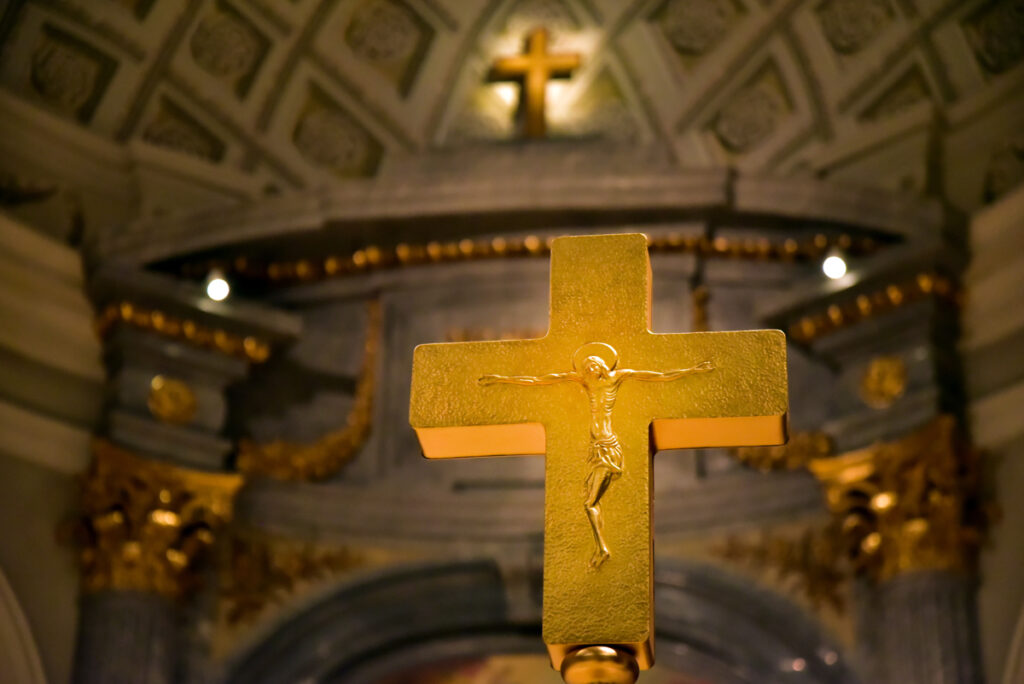
Since when do we celebrate Advent?
The tradition was born in the territory of the former Gallia, Hispania, and the people living there began to celebrate the wait. In the sixth century, in the ritual book of St. Gregory the Great, the four-week Advent waiting for the coming of the Lord, which ends with Christmas Eve, can already be found. For Catholic Christians, Advent also means the beginning of the new year, with the first Sunday of Advent.
When did the symbols of the holiday circle develop? What do the four candles represent, for example?
In the church, the spiritual content must also be expressed with material means. Since we humans live on earth, we need to have visible, tangible external signs of the spiritual contents that we want to experience, that we want to celebrate. Lighting more and more candles symbolizes waiting, the growth of light. Western Christmas coincides with the birth of the ancient Roman Sun (Sol invictus), i.e. the festival of light. The church said: we should not celebrate a celestial body as a god, because it is not that, but the real, glorious God who became man, because he is the true light. When the days are getting shorter and shorter, the light, that is, the Savior, is born in our hearts. Spiritual light, the light of renewal and rebirth is expressed by lighting more and more candles.
Why are the candles and ribbons on the Advent wreath purple?
The purple color is a sign of repentance and forgiveness, since Advent is a period of fasting and repentance at the same time, when the soul is cleansed and renewed. Nowadays, however, we no longer focus on repentance, as in Lent before Easter, but on good deeds. As well as how we can prepare for Christmas and to reorganize our relationship with Jesus, so that when he comes again in glory at any time, we are ready. The third candle is pink because the third Sunday of Advent is the Sunday of joy, it indicates that Christmas is approaching and that repentance and restrained life are not selfish.
Society once observed many nice customs and fasts, what traditions have remained to this day? Do the faithful still go to rorata?
Of course, it also depends on the place, but the beautiful tradition of going to mass early in the morning has not been lost. Of course, the faithful cannot go to every church every day, since we have fewer priests than decades ago.
What about fasting?
This custom is no longer alive, but there are places where meat is not consumed even today on the day before Christmas. The strict discipline according to the old liturgy and church ceremonial order has changed a lot, softened.
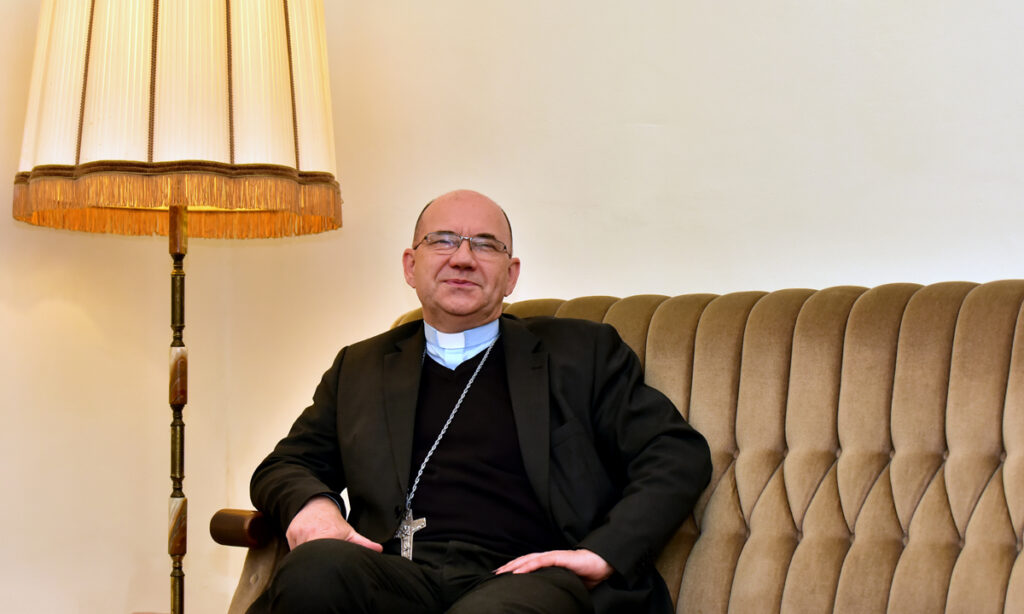
Obviously, all this is not independent of the popes of the last century either, but do you think it is right to relax?
Partly yes, partly no. In the past, much more and stricter fasting was prescribed. At the same time, the life and circumstances of a given person must always be taken into account, what is realistically feasible in their case. In fact, the church entrusts fasting more to the conscience of the faithful, it only expects a minimum, beyond which it is possible to undertake. If a Christian believer is sufficiently disciplined and mature, he can live with this freedom, he does not fast on instructions, but because of his inner need. I consider this better than someone fasting on an external command. It is certain: fasting has its place and is important.
Consumer culture has almost completely embraced anticipation and Christmas. How can we keep away from noisy advertisements and from being sucked in by the marketing vacuum, and not just focus on shopping, cooking and baking?
It is not enough if the church prescribes or recommends, awareness on the part of society is also necessary. We need commitment in our hearts. Eighty to a hundred years ago, it was considered natural for the people of the village to fast and strive for good deeds - religiosity permeated the entire society. Today that has changed. In the world around us, we have to create an intimate, festive atmosphere in ourselves and among our loved ones. This is not an easy task, it requires a lot of awareness to fix it in ourselves: Advent and Christmas are important to us, but only if we value them. And it only becomes valuable if we find joy in it, if it gives meaning and purpose to our lives. If so, and we'll do our best, we'll find the right way to celebrate. Despite all of this, it is true: it is difficult to prepare for Christmas when the shops are already swimming in festive light prices in November.
Is society at all aware of the damage that prolonged shopping and heightened - harmful - excitement can cause to the soul?
We strive to show the true meaning and light of Advent with the participation of our priests, ministers, deacons, and religious teachers, but the question is more complex than that. It cannot be said that people are becoming quiet en masse these days. A minority who consciously live their faith and who believe that Advent, morning Mass, and participation in the preparations are important to them. In our Christian communities, however, there is an aspiration for awareness, while the average person unfortunately drifts.
Can all of this be traced back to the fact that, as you just mentioned, fewer people are religious today?
Clearly, religiosity does not pervade society like it used to. Of course, we idealize the past a bit, but earlier the joyful bustle permeated the hearts of many, which affected everyone. This world has disappeared, and instead there is consumption, the incentive to consume, which is a great seductive force.
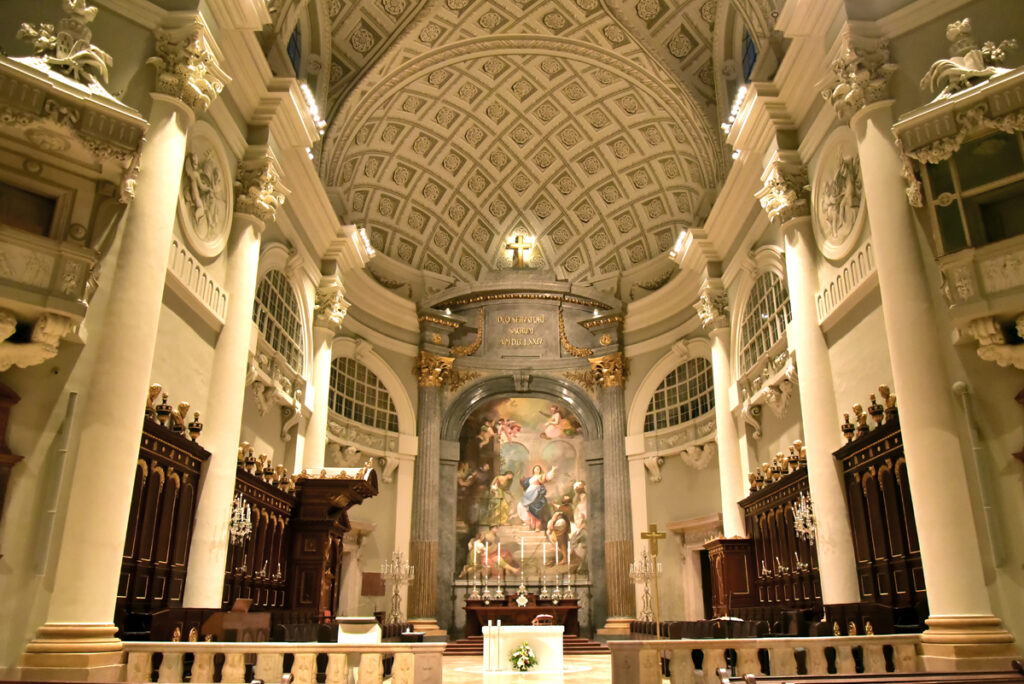
However, it comes with stress, sitting in traffic jams, brainstorming ideas, and worrying about lack of money.
Yet it causes shopping addiction in many people. Of course, trade and the advertising industry try to maintain this dependence. Many people feel good in the whirlwind, which comes with rush, stress and the danger of being empty.
He just said that many people are drifting, while the recipe is there to separate the tinsel from the valuable: the church can help, but the majority of people do not ask for it.
We try to help, as this is the church's job, but we cannot compete with the consumer world. We can't post counter-advertisements, but it's not our job either. We strive to plant desire and joy in people's hearts. If it exists and is able to become bigger and bigger, it permeates us, similar to leaven. There are many communities and settlements in Hungary where all this is important and they are preparing for the holiday, but this can only happen if the desire lives in the hearts of the people and they do not act on the suggestion of the church. The celebration is not needed by God, since He is perfect, but by us. By celebrating, many joys and spiritual treasures flow back to us, enriching us. Those who cannot experience this will miss out on this treasure.
He said that they cannot publish counter-advertisements. Can the media help the church?
By all means. I will mention an example: when St. II. Pope János Paul passed away, a real miracle happened, for two weeks everything was about him in the entire media. I saw that it had a positive effect on many people. Good can be broadcast in large quantities with the support of the media.
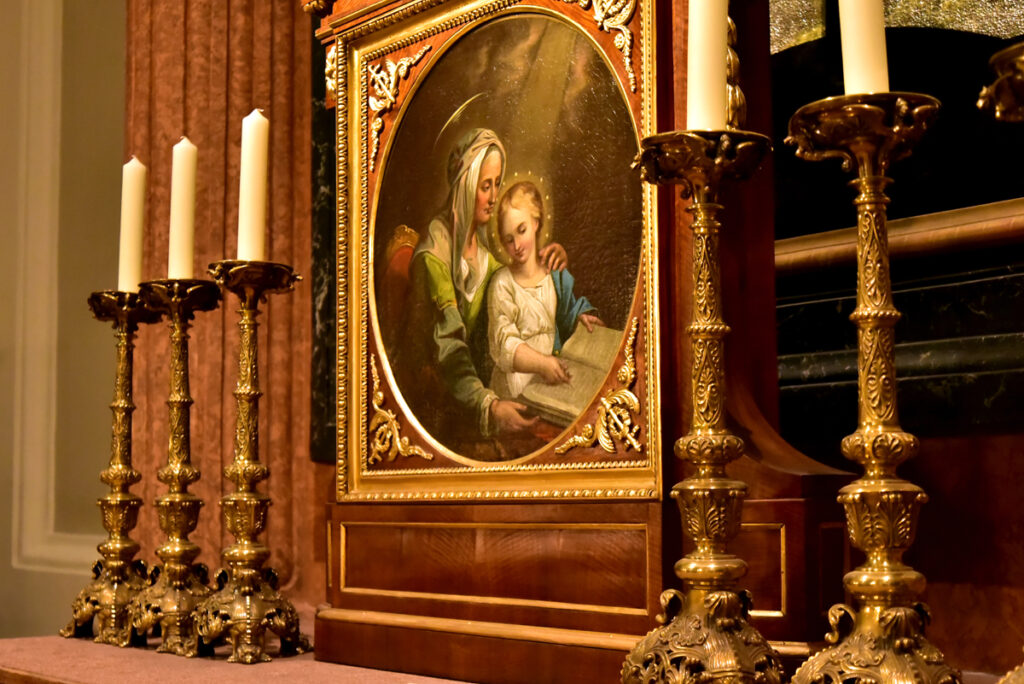
As the bishop responsible for families of the Hungarian Catholic Church, how do you experience what Advent and Christmas mean to Hungarian families?
I see many positive manifestations, which are also related to awareness. Where a family is not only administratively Christian, many beauties are born: they hold family prayers, make Advent wreaths, know why the candles are lit, why they are purple and pink. Making the Advent wreath is a great community-building opportunity in itself. Good deeds are collected in many families.
With this, the believing parent can more easily convince the child that the holiday is not only about the many and expensive gifts. What advice would you give to non-believing parents, how can they ensure that the child is not demanding and that he is not unhappy if he does not get everything he expects?
Obviously, all this is also a question of education, what is allowed to the child in general, not only in connection with the Christmas season, but I emphasize again that the focus must be placed on real values. We have to discover what true value is and where to find it. As Christians, we have a particularly beautiful task and responsibility to show, without intrusion, to make true Christian values attractive. If we light a candle, there is no need to tell "him" that "he" is the light, because it is visible. I could compare our profession to this. Let me mention an example again: previously, in one of my duty stations, the police captain also came with his family to the shepherd's game, even if he was not a believer, but he saw the value in the tradition and thought it important to take his children to the event. Later he became a believer. People have a desire for the good and the beautiful. We are traveling in a river with strong currents, it doesn't matter where we dock with our small boat, or if we allow ourselves to be swept away by the current so that we accidentally get stuck on a larger rock or tree branch. If a person only relies on his instincts, drifting, shopping, cooking, it is associated with stress and tension. But what good is all this if the family members fight in the meantime?
How will you spend Advent and Christmas?
I like hiking, maybe I'll find time for it in Advent. On the second of December, in the renovated Vác Cathedral, in the heart of the diocese, I will celebrate the first Rorate Mass myself. Every Advent week, I say morning mass in a different church in Vác. It's a happy sacrifice to be fresh early. During the week of Christmas, we visit the people living in the local homeless shelter, entertain them and give them spiritual food. The student priests arrive on the twenty-second of December, and we are already preparing for Christmas with them. They are my spiritual family. I spend Christmas Eve with them, when I also invite the city priests and deacons. We are together until Christmas lunch, after which I visit my mother, brother and cousins.
Gallery
Photos: Tamás Császár

